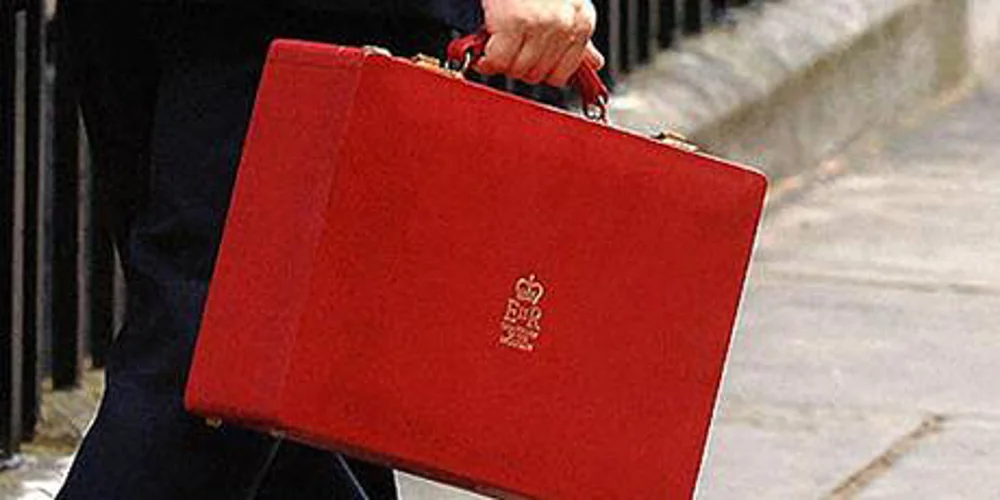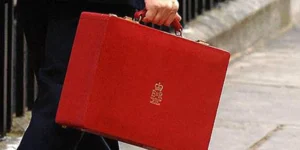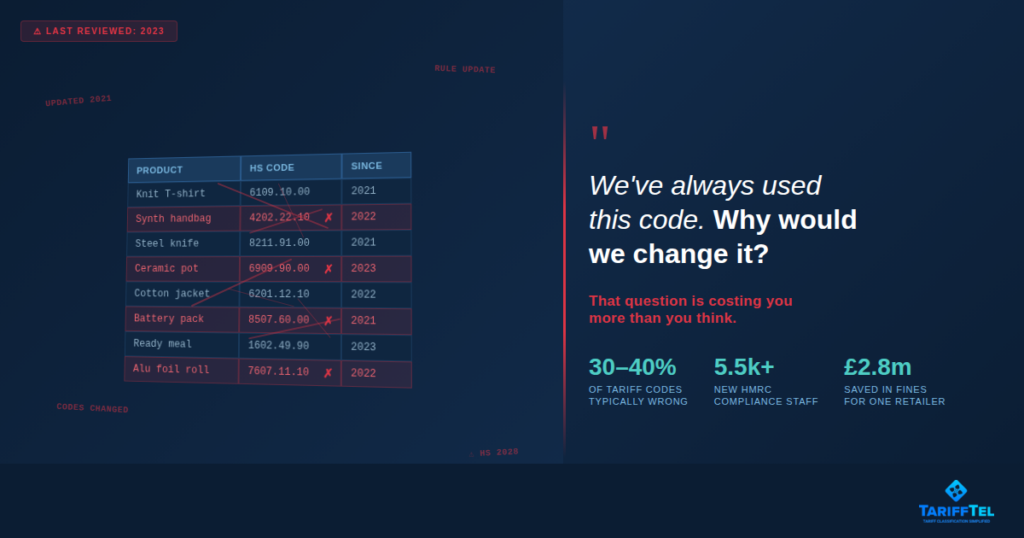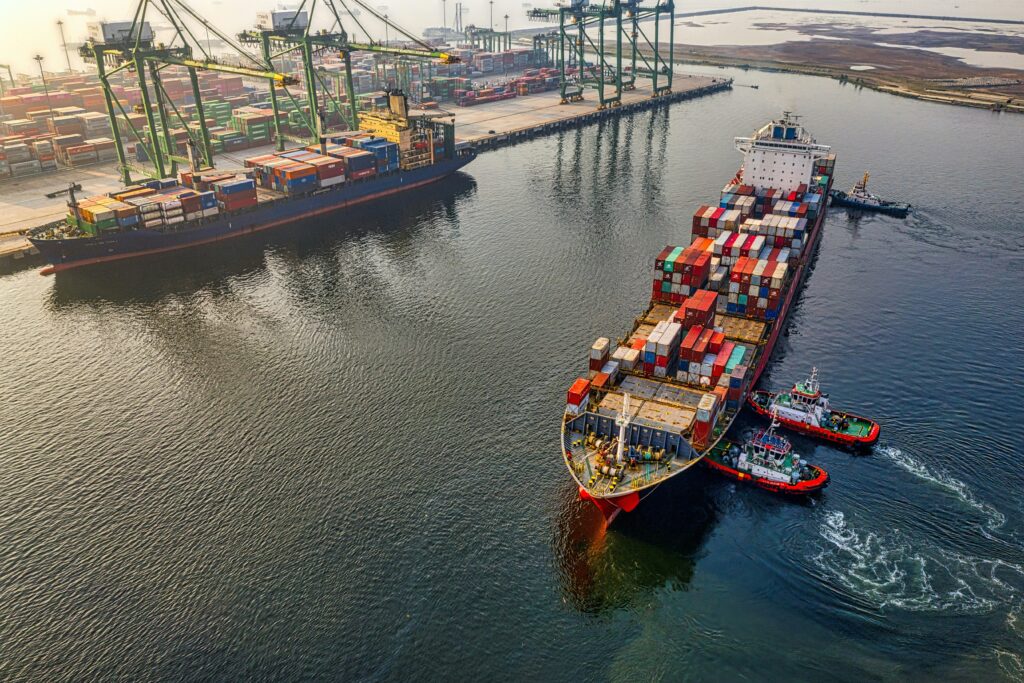Budget analysis: The UK’s low‑value import reform
Topics

Yesterday’s UK Autumn Budget 2025 proposed a major change in the UK’s treatment of low‑value imports (LVIs), a shift that carries implications for customs classification. Under the proposed plan, the longstanding relief on customs duty for parcels valued at £135 or less will be removed. This is a move driven by concerns over fairness, market distortion, and scale of use.
It marks a sizeable shift in the way millions of parcels that were previously considered “low-risk, duty‑free” could become eligible for duty payment. For many businesses, this might be new territory and for others, it presents new compliance risk and administrative burden.
Here, we look into what was presented yesterday ‘under review’ and what businesses currently shipping LVIs need to prepare for in the future.
What’s changing?
Under the existing framework, many low‑value shipments entered via the Bulk Import Reduced Data Set (BIRDS) qualify for a simplified customs procedure if parcels are under £135. BIRDS allows authorised importers to submit a bulk declaration for multiple low‑value parcels.
Because BIRDS consignments are relieved from customs duty, item‑level descriptions and tariff codes are typically not required.
 The new Autumn Budget 2025 changes this. Removing the LVI duty relief effectively ends the BIRDS safety‑net. Once duty applies, standard classification requirements return, meaning all goods will now require an accurate tariff code. Importers will need to declare each item with full 10‑digit commodity codes to ensure correct duty, compliance and audit readiness.
The new Autumn Budget 2025 changes this. Removing the LVI duty relief effectively ends the BIRDS safety‑net. Once duty applies, standard classification requirements return, meaning all goods will now require an accurate tariff code. Importers will need to declare each item with full 10‑digit commodity codes to ensure correct duty, compliance and audit readiness.
Effectively, this change means thousands of shipments will require classification, marking a radical shift in the regulatory burden and compliance risk for companies this applies to.
Classification risk & compliance exposure
The magnitude of low‑value trade in the UK has surged. HM Revenue & Customs (HMRC) reports that the declared value of such low‑value imports rose 53% in the 12 months to April 2025, reaching £5.9 billion.
With that volume, the reintroduction of duties could generate an estimated £600 million per annum in additional revenue.
The compliance stakes for misclassification are high. Incorrectly coded items could incur incorrect duties, missed savings from preferential tariff treatment, customs delays, audits, or even import restrictions. All of which have far-reaching consequences on exporters.
For high‑volume e‑commerce sellers and online marketplaces historically reliant on BIRDS- bulk declarations, this proposed change will demand a complete rethink of trade operations as classification becomes a main priority.
What the UK Government has confirmed
The UK government has confirmed that the duty-free status for low-value items under £135 is under review, with the formal consultation launched in April 2025 involving stakeholders such as trade associations. While this signals a clear direction, the government has not yet confirmed the full implementation timeline, the exact classification procedures, or whether a “simplified tariff bucket” alternative will be adopted.
In the absence of detailed guidance, businesses should treat this as a likely regulatory shift and begin preparing for a future in which low-value imports require full, item-level classification and standard customs treatment. The time to get informed on the technology platforms and classification approaches that ensure compliance is now.
What this means for classification
The coming shift in low‑value import rules effectively upgrades classification to becoming priority number one for many businesses, particularly ecommerce retailers.
Tariff code classification becomes unavoidable. Every item will need a 10‑digit HS code to determine applicable duty rates
Supply‑chain and product‑data quality will matter more than ever. Detailed product descriptions, composition, origin, and packaging information which may previously have been overlooked under BIRDS will become essential to support accurate classification.
Automated, scalable classification becomes critical. For high‑volume sellers, manual classification will be too labour-intensive, error‑prone and costly. Classification platforms like TariffTel can support with the core infrastructure needed for compliance and tariff code accuracy.
Audit‑ready classification and documentation will protect against compliance risk. With increased customs scrutiny, the ability to trace and justify each tariff code is essential for regulatory compliance.
What was once a simplified import channel will now be subject to the same classification rigour as other commercial imports. Whilst the review is underway, the time to explore classification options is now.
The UK is not alone, what’s happening in the EU
The UK is not alone is revising its approach to low-value imports. The EU has recently agreed to abolish the EU’s €150 customs duty exemption in a similar move. Under the new policy, all parcels entering the EU, regardless of value, will be subject to customs duty.
Starting in 2026, the EU will phase in a temporary mechanism to collect duties of low value imports. A permanent solution is expected around 2028 when the new EU Customs Data Hub comes online.
For UK exporters to the EU, this change adds another layer of complexity to navigate. Goods sent to the EU may now require classification and duty calculations.
Parallel changes on tariffs for low-value imports are happening globally, from the UK, EU and US (read more on our de minimis blog). This shift is not happening in isolation and forms part of a broader move for stricter border compliance. For any business trading in high-volume, low-value imports, including online sellers and marketplaces, now is the time to reassess classification strategies to stay ahead of proposed regulation changes and invest in an infrastructure built for accurate classification and compliance such as TariffTel.
Other Useful Resources
“We’ve always used this code. Why would we change it?”
That question is costing you more than you think. It sounds reasonable. The code worked last time. Your broke...
Why 2 out of every 5 tariff codes are typically wrong
And what it’s costing you... Tariff codes might look like a routine administrative step when you’re preparing goo...
Tariff Book updates for 2026
As we head into 2026, another round of tariff book changes have come into force. Many relate to electricals and chemical...



